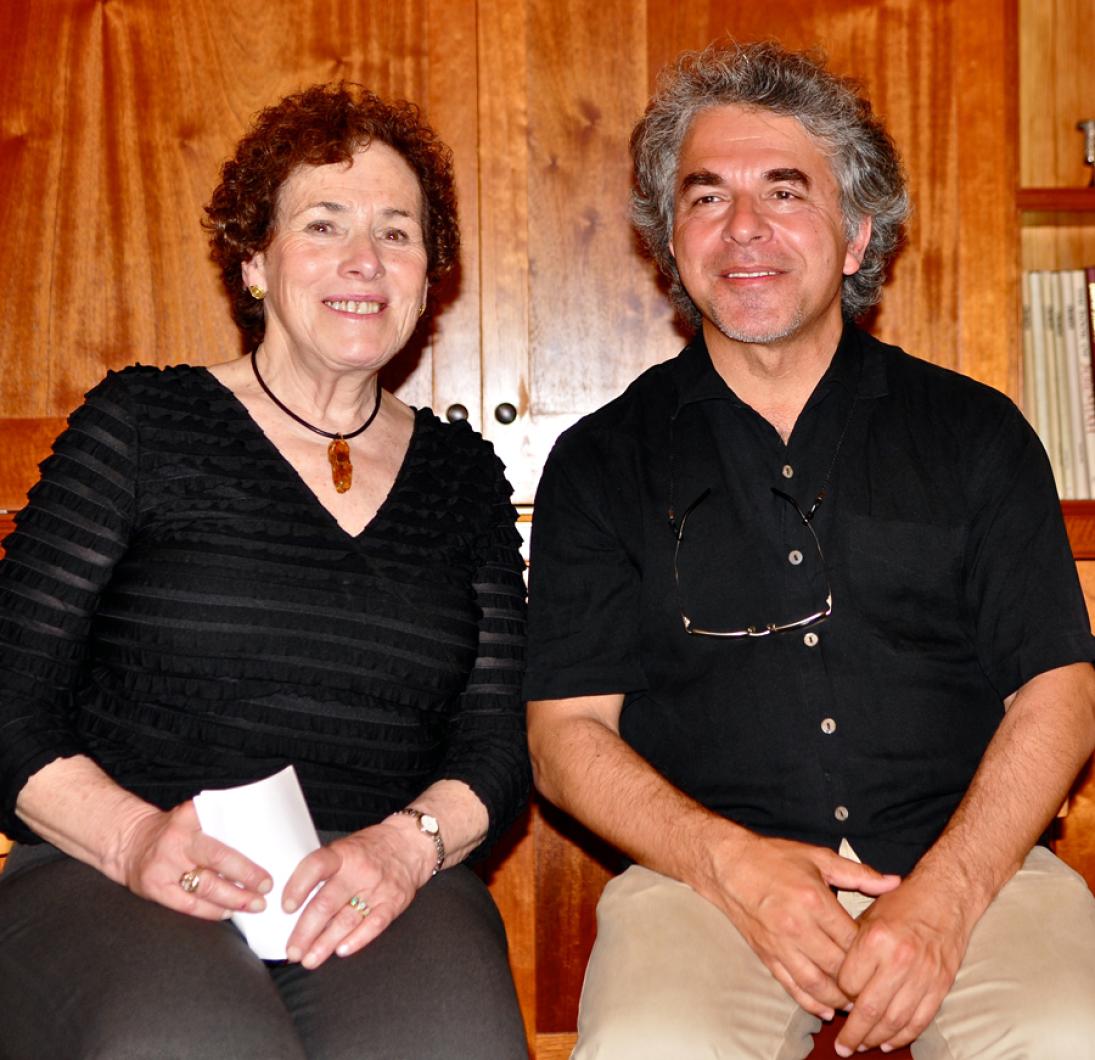Asher and Shyfra Scharf were ready for their trip. Their Uzbek visas were current, though they hadn’t set foot in the country for more than 60 years. All they needed now was a reason to return. They didn’t know how or when the call would come, nor did they have a reason to believe it would come at all. But still, they waited.
It was Polish filmmaker Slawomir Grunberg who finally reached out. The Scharf couple, now over 80, would finally have the chance to tell their story, to revisit the strange and foreign lands that they’d called home during the darkest days of the Second World War. They’d revisit the Russian work camps and retread the Middle Eastern streets looking for small reminders of a past life.
Mr. and Mrs. Scharf became two of the featured voices in Mr. Grunberg’s documentary Saved By Deportation, a film that followed seven Polish Jews who were deported to Russia and other Soviet states including Tajikistan and Uzbekistan, and used for free labor during World War II, under the rule of Soviet dictator Joseph Stalin. The conditions of travel, and the living conditions in their various destinations were dreadful, but the deportation ultimately saved some 200,000 Polish Jews from extermination in the Holocaust.
“I learned that this story was never told,” said Mr. Grunberg, who spoke Sunday night after a screening of the film at the new Harriet B. Freedberg Learning Center at the Martha’s Vineyard Hebrew Center. Beside him was Anita Hotchkiss, who with her family was deported from Poland to a labor camp as a young girl.
Saved By Deportation was seven years in the making, and funded largely out-of-pocket. The film, said Mr. Grunberg, was a true labor of love, the story of a largely overlooked portion of history. It was the first film of its kind, and the first time that many descendents of the deported heard the whole tale.
“They had heard little pieces of the story but never could put it together,” said Mr. Grunberg.
But deciding to make the film was the easy part. Finding the people to make the film possible was much more difficult. Mr. Grunberg came across the Scharf family purely by luck.
“The idea which I had in mind for making this film was to have a family which would decide to go with us to retrace their lives back to Siberia and Tajikistan, and Kazakhstan and Uzbekistan. And it was not easy to find a family like this because people were in their 80s, those who remembered. We were looking for people who would go back to those places and say, ‘This is where I lived; this is my coal mine,’” Mr. Grunberg said.
But three years after starting the project, someone finally led him to Mr. and Mrs. Scharf. “We came to them and they said, ‘Not only do we want to go, we were waiting for the opportunity to go back,’ ” said Mr. Grunberg. “They were just ready for us. It was just luck.” Armed with weeks worth of kosher foods, the Scharfs set off on the painful journey through the past, documented at each turn by Mr. Grunberg. They retraced their steps from their first destination in Russia to Uzbekistan, where the young couple was eventually married, and where they lived together when the war finally came to a close.
Many of the experiences captured in the film closely mirrored tales of the concentration camps. People were torn from their homes, separated from their families and packed into crowded train cars headed toward unknown destinations. Upon arrival, they filed into dilapidated barracks and into overcrowded rooms with paint crackling off the walls, and insects infesting every surface. Conditions were deplorable. But unlike the concentration camps, the work camps were not designed for murder.
“I became a human. I became a man,” said one man featured in the film, of his experience living and working in Siberia. His prosperous upbringing provided a stark contrast for the savage conditions of his life at a Russian work camp. “I don’t think I would have liked to be my own friend, growing up in Poland. But the whole Russian experience made something out of me,” he said, with tears in his eyes.
Most of the people featured in the film said the most difficult part of the entire experience was the return to their home country after the war had ended. Many had lost most or all family members in concentration camps, and returned to violent anti-Semitism. Mr. and Mrs. Scharf, like many others, ended up leaving for good. They settled in the United States. And decades later, they finally had the chance to tell their story.
“It becomes a piece of history which they keep for their family,” said Mr. Grunberg. “We’re talking about 200,000 Jews, and their families, and their families, that survived because they were lucky to be deported to labor camps. Which is an interesting irony of history, but it’s the truth.”




Comments
Comment policy »